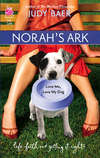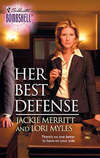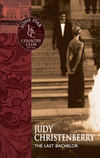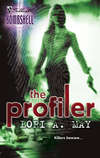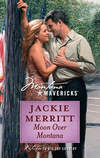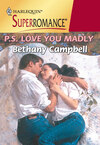Kitabı oku: «The Secret Heiress», sayfa 2
Chapter Two
The rain started to drizzle harder as Marie and Izzy left the parking lot. It was just after midnight. Izzy stopped at a light and said, “What was that all about?”
“Butch groped me again,” Marie said in a flat, no-nonsense voice. “I stomped on his foot. That’s why he came after me in the parking lot. Mick and that other man saw it happen. They must have realized Butch wanted to get even.”
“So that handsome guy comes to your rescue?” Izzy asked. “God, I wish Butch’d pinch me so I could stomp on him.”
Marie said nothing, just sat lower in the seat.
Izzy cast her a sideways glance. “That handsome guy? He was watching you tonight.”
“I didn’t notice,” Marie said. And she hadn’t.
“Not notice? How could you not notice? He’s been in the papers, on the telly.”
“I don’t have time for the papers or telly,” Marie murmured, gazing out at the darkness.
“He’s a high muckety-muck in horse racing. American. He’s going to run for some horse-thingy president. Against Jacko Bullock.”
“Uck.” Marie shuddered. Bullock turned up several times a year at the Scepter during the racing season. She thought he looked like and acted like a pig. “Bullock’s nasty. He’s worse than Butch any day. He propositioned me right at the table one night, in front of three other men. I almost poured his drink on his head. I’d have loved to.”
“Well, he’s powerful,” Izzy said. “He’ll gobble that poor Yank up and spit out his bones.”
“Sad but true. The Yank seemed like a nice fellow.” He had, she thought vaguely. An extremely nice fellow.
“I guess,” Izzy rejoined with heavy irony. “And that’s why you ended up in his arms? I thought he was going to plant a big smoochie on you.”
Marie shrugged irritably. “Look, I went wobbly. I had a bad day.”
“Oh, chook,” Izzy said. “I’m sorry. Is it your mom?”
“Yes,” Marie said, her throat tight. “But I don’t want to talk about it.”
And Izzy, who had a kind and sensitive heart, asked no more.
But at home, Marie had to think about her mother. She could think of nothing else. She took Colette’s envelope, sat on the edge of the bed and forced her hands to stay steady as she opened the flap.
She unfolded a sheet of paper, a letter. It was dated just over two years ago and signed “Willadene Gates.” It began:
My Dear Miss Colette Lafayette,
Thank you for writing me, for I think I can answer your questions, as years ago when I was not yet 17 yrs. of age I become an attendant at a home for unwed mothers.
A high-priced place, it promised total discretion, if you get my meaning. I do remember your birth, for your birthday is the very same day as my own, March 9!
“Your mother’s name was Louisa Fairchild. She was 16 yrs. old, unwed & pregnant, & come from quite the posh family.
And I remember you, even after all these years. I said to myself, how could anyone give up such a darling infant? But that girl refused to even speak of you. Cold as ice, she was.
In a few days, her parents come and took her home. Louisa F. walked out of the ward with never a backward look. She never even spoke to her own parents!
Now she’s grown up and grown old. I see her name in the news. She’s rich as Midas and lives on a horse station near Hunter Valley—very hoity-toity! She never married and don’t get along with any relatives, I hear tell.
Should you find her, and she recognizes you as her own, I hope you will not forget your friend, Willadene, what give you this info, as I am now elderly and living in reduced circumstances (although as you see the memory is still sharp!)
Your friend, the first to ever hold & kiss you,
Willadene Gates
At the bottom, Colette had weakly scribbled a note.
I wrote Willadene Gates two months later. The letter came back marked “deceased.” I didn’t know what to do next. My feelings are still mixed about whether I should try to find out more or let the matter go.
Marie, I put some of my nail clippings in a little plastic bag. I pricked my finger and let some blood fall on a piece of cloth. I put them in an envelope in my jewelry box. If we’re related to Louisa Fairchild, your DNA and mine should match hers, if I understand what they say on the telly.
It would be good to know the truth, at long last, but I was never brave enough to search further. I should have done it for your sake and apologize that I did not. I leave it in your capable hands.
Your proud and loving mother.
Marie read the letter again, disbelief mingling with suspicion.
How had Colette found this Gates person? Could the woman be trusted? Her words had a slippery coyness that oozed with hunger for reward.
Marie rose and went to her mother’s bedroom and opened the shabby velvet jewelry box on the dresser. An envelope lay in the box’s bottom drawer.
Almost fearfully, she opened it. Inside was exactly what Colette had said, a little bag of nail parings and a square of white cotton with three drops of blood.
She also found a second, smaller paper envelope. Opening it, she saw a newspaper photograph with a short article. The article, eight months old, reported that charges had been dropped against Louisa Fairchild, 80. She’d been accused of shooting and wounding her neighbor Sam Whittleson, 61.
The short piece left Marie even more stunned. As a very young woman, Louisa Fairchild had apparently abandoned her daughter. As a very old woman, she’d shot her elderly neighbor. Such a relative didn’t seem promising.
But the picture of Louisa Fairchild shocked her more. She saw a lean, imperious woman staring straight and almost arrogantly at the camera. Her mouth was a rigid, unsmiling line. Yet her resemblance to Colette made Marie’s nerve ends prickle and chilled her stomach.
Louisa Fairchild still had wide eyes, shaped like Colette’s. She had Colette’s high cheekbones, slender nose and cleft chin. And Marie herself shared these features, too, except for the cleft chin.
She was suddenly overcome with an almost irrational curiosity. The Fairchild woman lived in Hunter Valley. Not long ago, Marie’s uncle had gone to work in that very region. Could he know anything about this woman?
She went back to her room, snatched up her phone and dialed her uncle’s latest number. It was after midnight, but Reynard was a night owl. He answered after only a few rings. “Marie!” he exclaimed. “How are you, love? And how’s my dear Colie?”
Marie heard background noise and supposed he was in a pub. “Rennie, Mama’s not well. She’s very weak—and she doesn’t look good—I’m afraid for her.”
Reynard’s voice went serious. “She’s taken a turn for the worse?”
“I sense it. She’s getting weaker. The doctors don’t seem able to help her.”
Reynard spat out several colorful oaths concerning doctors. Then his tone grew solemn again. “Should I come? Would it help if I was with you?”
“Rennie, you’ve got a job. You just can’t walk away.”
“I can if I need to be with her and you, pet. No man owns Rennie Lafayette.”
Marie feared she’d sounded too alarmist. “Wait until I know more. But Reynard?”
“What, love?”
“Mama gave me a letter that a woman wrote her. This woman said she’d worked in a home for unwed mothers and remembers when Mama was born. And she named Mama’s birth mother. Do you know anything about this?”
“Stone the crows!” he said in surprise. “I never—she never said a word to me. When did she find this out?”
“Over two years ago. And the woman died shortly after. I don’t know how to check this out. Or even if I should. Mama’s mother might be dead, too, by now. But she lives or lived in Hunter Valley. Have you ever heard of a Louisa Fairchild?”
“Heard of her?” Reynard demanded. “Crikey, I know her! She’s supposed to be Colie’s mom? Hold on. I’m going outside for a bit of privacy.”
Marie heard him tell someone to deal him out; he had a family emergency. The background noise faded. She pictured him stepping, alone, into the Southern night.
“There,” he said. “Now—Louisa Fairchild is supposed to be Colie’s mum?”
“So said the Gates woman.”
“That’s a jolt. Colie’s such a nice woman. So much for the bloody theory of heredity.”
“Louisa Fairchild’s not a nice woman?”
“The old girl’s a snorter, she is. But now that I think on it, she does bear a certain likeness to Colie. It’s truth.”
Marie remembered the photo and somehow she managed to feel both numbed and anxious at once. “You really know her?”
“I live at a neighboring horse station, not far from her. I’m the handyman there. I’ve actually been in the old girl’s house. Fixed the lock on her famous gun cabinet. She’s an old boiler, she is, a right old hen. But I get some smiles out of her—pruny smiles, but I get ’em.”
Marie didn’t doubt it. If Reynard put his mind to it, he could make a cat laugh. She said, “Gun cabinet? Mama had a clipping about Louisa Fairchild. Something about her shooting a man—do you know about it?”
“All New South Wales knows about it. She said the bloke stormed into her house, raving about water rights, and attacked her. Conveniently, she was cleaning a gun at the time. Said it went off accidental-like.”
“And people believe that?”
“Some do. And some say she got off the hook because she had more money than Whittleson. She could out-lawyer him.”
“What do you think?” Marie asked, frowning in uncertainty.
“I think it’s odd to be cleaning a loaded gun. It’s a point Whittleson’s lawyer never brought up. But lawyers? Pah—they’re about as useful as a third armpit.”
Reynard always resented authority and officials; unlike Colette, he was a born rebel, and it was part of his raffish charm. Marie tried to nudge him further into the subject.
“You’ve met her. Do you think she could shoot somebody?”
“She’s a scrapper. And she can shoot. Rumor says she can blast the head off a snake at thirty meters. Still,” Reynard said silkily, “she’s rich as a queen. No known direct descendants. If she’s your gran, she might open her scrawny arms to you in welcome.”
“I might not open mine,” Marie said. She liked nothing she’d learned about this woman.
“She’s a hard one to know,” he returned. “Not a happy person. Lonesome, I think.”
Reynard’s take on Louisa confused Marie. He sounded critical one moment, sympathetic the next. But he was often mercurial; that was his nature.
“I wonder why Mama waited so long to tell me.”
“I don’t know, pet. But from what you say, I think I’ll drive right up there. She may be franker with me than with you about Louisa Fairchild. I am her baby brother, eh?”
Marie protested, but Reynard insisted. “Today’s Monday. If I start early tomorrow, I can make it in two days. Don’t argue, dear heart. My womenfolk need me!”
My womenfolk need me! He sounded so swashbuckling, she almost smiled.
“You’re sure you won’t lose your job?” she asked.
“Who’d be fool enough to fire a jack-of-all-trades like me?” he said with the same bravado. “I’m indispensable, if I do say so.”
Marie smiled. Although Colette worried about her footloose brother, he always cheered her as no one else could. “Then come to us,” she said.
But shortly after 3:00 a.m., Marie’s phone rang. It was the hospital, calling to inform her that Colette had died in her sleep.
Chapter Three
Marie was stunned, but didn’t cry. What she’d feared most had happened, but it seemed unreal. It was as if she was trapped in a terrible, incomprehensible dream.
She phoned Reynard, who sounded stricken and said he’d be there as soon as he could.
The next morning, zombielike, Marie arranged for her mother’s remains to be cremated. She had it done as soon as possible, without ceremony, for that had been Colette’s wish.
Then, somehow, she went to her classes, still feeling trapped in the numb, unbelievable nightmare. That night she waited tables at the Scepter, functioning on autopilot. But under her business-as-usual facade, she was in a maelstrom of emotion.
All of Marie’s life, it had been the two of them, she and Colette. When the Lafayette family’s fortune failed, Colette went to work as soon as she could and had never stopped. Reynard had left Darwin. Some called him a drifter, but he called himself “a free spirit.”
He returned to visit two or three times a year, and then he’d be off again to wherever his whim took him. He was clever enough to always find a job, too restless ever to keep it long.
By her early thirties, Colette was working as a cook and housekeeper. Lonely and shy, she tried always to please. Finally, in the household of a professor whose wife had left him, she tried too hard. He easily seduced her.
Colette soon found herself pregnant—and unemployed. She didn’t tell Marie who her father was until Marie was ten, and the man had been dead five years.
He’d never acknowledged Marie’s existence, and Colette had never asked him for a thing. So from the beginning of Marie’s life, she and Colette had been a family of two, and Colette had been not only her mother but her closest companion.
That night, the first night that Colette was gone, the stupid busboy, Butch, made a move to grope Marie again.
“Where’s your fancy toff tonight?” he sneered. “Want a real man?” She looked at him in disgust, her expression cold as Antarctica.
“Why are you so uppity?” he demanded. “Think you got the crown jewels between your legs? You’re the same as any other woman.”
She turned and walked away. She was not the same as any other woman. All she knew for certain about Colette’s mother was that the woman had foolishly trusted a man. Result? She’d ended up unmarried and pregnant.
Colette made exactly the same mistake. Result? She’d ended up unmarried and pregnant—but she’d not been one to give up her child.
Two illegitimate generations were enough.
Long ago, Marie vowed she wouldn’t repeat the pattern. She intended never to “fall in love” or into any man’s bed. Ever. Marriage? Married women could be as lonely as single ones. Sometimes lonelier.
It had been completely unlike her, nearly collapsing into a stranger’s arms last night. She wondered if she’d done it because she’d known Colette was dying. Had she known that from the moment Colette put the letter in her hand?
She wanted this empty, unhappy day to be over.
This, too, will pass away, she thought. But it didn’t pass soon enough.
She glanced at her watch, wishing it were midnight. But it was only 7:00 p.m.
On the grounds of Mick’s stud farm, Makem’s Thoroughbreds, Andrew glanced at his watch and wished the night was older and the party over. But it was only 7:00 p.m.
A gorgeous brunette in a tight red sundress leaned against a palm tree watching him, sultry invitation in her gaze. Andrew ignored her. He intended to keep on ignoring her.
A man in the public eye, a man campaigning for an important office, should not fool with women. He knew he shouldn’t have impulsively embraced the waitress in the parking lot last night…yet, still, for some reason, the memory of her rain-misted face haunted him.
But he needed to watch his step. Especially when his opponent had large media holdings—including some of the country’s most ruthless scandal sheets. And Andrew’s family had just emerged from an alleged breeding crime that made headlines around the world.
Jacko Bullock loved to sling mud. Sexy mud sold best, even if it was lies. Jacko would be delighted to find dirt on Andrew, especially sensational dirt.
Andrew didn’t intend to supply him with any. Not a rustle of impropriety. Not a whisper, a wisp, a breath.
Mick Makem, who was hosting the barbecue, gave him a sly nudge. “That black-haired beauty over there’s giving you the eye.” His freckled face split in a grin.
“Not interested,” Andrew answered, taking a sip of beer. “People are taking pictures here. And she looks like trouble.”
Mick jabbed with a sharper nudge. “Lovely trouble. All work and no play make Jack a dull guy.”
“Better a dull guy than a fall guy,” Andrew muttered.
“Oh,” said Mick, understanding. “Bullock, you mean.”
“Right.”
Bullock still repeated the accusations about the American Prestons’ breeding fraud. Even though the Prestons had been cleared of any wrong doing in the DNA fraud that had ended the career of their star stallion, Leopold’s Legacy, Bullock kept resurrecting memories of the old rumors and implying new evidence might soon emerge.
Bullock’s point, Andrew knew, was to keep the Preston family firmly linked to the word scandal. And what could be more damaging to a candidate than a good old-fashioned sex scandal?
How many American politicians had lost their reputations, even their careers, by not keeping their pants zipped? Count ’em, Andrew thought.
So he had grimly vowed to stay celibate for the duration of the election. Here in Australia, he was the tall, dark, single American from a rich family with a famous stable. Beautiful women signaled him they were ready for kissing and a great deal more. He’d been approached by so many lookers, it made him suspicious.
He knew he was considered handsome. But he was also smart enough to know that he hadn’t become as sexy as a rock star as soon as he stepped on the Australian shore. And he knew looks weren’t particularly an advantage against the homely, hearty and proudly homegrown Bullock. Bullock looked and acted like somebody’s plain and stocky loudmouthed uncle, Australia’s answer to a Good Ol’ Boy.
Andrew didn’t come across as a Good Ol’ Boy. He was long and lean, with chiseled features, brown-black hair and deep blue eyes, and he had a slew of college degrees. Next to the rotund Bullock, he didn’t look homey and jovial; he looked aristocratic and privileged.
Unlike Bullock, he wasn’t a glad-hander or a baby-kisser. He didn’t slap backs or lavish smarmy compliments on everybody he met. When he talked about issues, he talked about them with passion, but his passion was measured and earnest. He didn’t pound the podium like Bullock. He didn’t shout or sputter or chortle or wave his arms or tell raunchy jokes.
The result was that, although some people thought Andrew the serious, committed and perfect candidate, others believed he didn’t have a chance in hell. And tonight, he was haunted by a sensation usually foreign to him: he felt isolated.
Mick’s barbecue wasn’t just for political reasons. This was Andrew’s birthday, his thirty-sixth. Turning thirty-six was sobering. He’d unwittingly crossed some psychological line he hadn’t known existed.
Most of his friends had settled jobs, wives and children. He had a campaign.
He was now closer to forty than to thirty…and in the hurly-burly of entering the election, he’d begun to feel disconnected from his real self. He had to watch every word, every action, even every facial expression and bit of body language, especially here in Jacko-Land.
Stop obsessing, man, he commanded. You’ve got principles, and you committed to run for the presidency. Forget the private stuff. Fight your heart out.
So he set his jaw and put on his public persona again. He smiled. He rejoined the party. He had indulged himself in something like a midlife crisis for almost two minutes, and that was two damned minutes more than enough.
He amiably cuffed Mick’s arm and complimented him on the feast spread before the crowd. Wine from a local vineyard flowed generously and cold beers seemed to number in the hundreds.
“Want to see something really delish?” Mick asked with a wink. “Look who’s coming your way.”
Andrew saw the beautiful brunette making her way toward him, her eyes now fastened on his. Her red sundress was cut low over a startling pair of breasts, and she sparkled with jewelry. She was almost too stunning to be real.
She looked like a model or a beauty queen or a starlet. She certainly didn’t look as though she belonged at a suburban political barbecue. Distrust edged into Andrew’s mind. “Mick,” he said, “do you even know who she is?”
“No,” Mick admitted. “She’s a guest of one of the breeders. But it’s you she’s got her eye on. She’s been trying to catch your attention all night.”
My God, thought Andrew, could she be a plant? Somebody the Bullock people had sent to entice him?
Photographers, press people, some with video cams, milled through the crowd.
The brunette smiled at him and nodded in more than friendly greeting. He smiled back mechanically.
“Hi, there,” she purred. “My name’s Sylvia. I just want to say I totally agree with everything you say. I heard you’re going to stay with your cousin down in Hunter Valley. I get to Hunter Valley now and then.”
“I make my base with him in Hunter Valley,” Andrew said. “But I won’t be there much. Have to travel a lot. Excuse me. I see somebody I have to talk to. Nice to meet you.”
He nodded, a curt movement that signaled goodbye. He turned his back on the woman and left her looking piqued.
Maybe he was being paranoid, but that might be good. No involvement with women—especially one like that—until the election was over. That was that, and it should be gospel.
But suddenly he remembered his strange attraction to the blond waitress. He wondered why he couldn’t forget her. Biology could toss even the most cautious man a curveball.
He was more cautious than most because he had to be. He pushed the blonde to the back of his highly efficient mind.
Almost.
But there was another woman, only a memory now, a lively voice that sometimes spoke to him that no one heard except him.
He gazed up at the night. Darwin’s cloudy sky showed an obscured, gray pearlized moon. Suddenly the voice in his memory, that long-ago woman’s voice, said “There’s a door in the moon—if you can find it. And if you open it, you find out the future.”
For an instant, he saw the past instead, and another young woman, small and spirited like the waitress. Kellie Maguire.
He’d met her his first year at the University of Kentucky. When she’d told him about the door in the moon, at first he thought she was nuts or trying to grab attention. No. She meant it. He finally asked if she’d ever found the door into the moon.
She’d laughed and said she’d never looked for the future; she was too busy with the present. And she was.
She wasn’t like anybody he’d ever known before. She had a sassy air about her and long red hair, always tied back in an unruly ponytail. She was sweet and cheery and as independent as hell.
Unlike him, she didn’t come from a family with money. She was a scholarship student, majoring in art and literature. He thought that was stupid. How could anybody make money that way?
She laughed good-naturedly at his business major. How was he ever going to have fun if he didn’t learn anything except money? “Hey, Preston,” she teased. “Live, why don’t you?”
She didn’t give a damn for fashion, and she was so original and self-disciplined he was in awe of her. He’d only seen her cry once, when she’d learned her grandmother was dying. She broke down in tears for almost a full minute, and he’d held her. Then she’d pulled herself together and tried to act as if nothing had happened. She’d never spoken again of that moment.
He was secretly shy and, though he hated to admit it, hide-bound. She challenged him, she fascinated him, she could get him talking half the night about things he’d never even thought of before.
She enticed him to movies he never would have seen on his own, challenged him to read books he normally never would have opened. She’d changed him, and by the end of his freshman year, he was falling in love with her, unconventional as she was.
And then she was gone. Forever. A swimming accident over the summer. A drunken motorboater didn’t see her, and ran into her, killing her almost instantly. And Andrew hadn’t come close to loving anyone again since.
Now, for that strange instant, the door in the moon opened, and he saw her standing there, with a smile and her untidy red hair dancing in the cloudy breeze.
“Christ, Preston,” she said in his mind. “Now you want to be president of ITRF?”
That question raised a dozen more in his heart.
“Yeah,” he said to her silently. “Very funny, huh? I want to be president…”
“Then go for it,” she answered with her sidelong grin. “But is that all you want? Are you sure? Isn’t there something missing?”
And then her image disappeared, and he was staring up at a clouded, doorless moon.
At midnight that night, Jacko Bullock reached across the sleeping body of his mistress and picked up the receiver. “What?” he demanded. He was in a rotten mood because he’d just dozed off, but he hadn’t quite managed to make love to Tarita, who now slept beside him, all silken and exquisite and useless. He needed a new woman again.
He heard raspy breathing, and that meant Feeney. Feeney was his contact, his liaison in Jacko’s covert war on Andrew Preston. Feeney was a general in this war, one whose face he’d never seen, but who’d been supplied by very dependable allies.
Jacko had a public campaign for president of the ICRF. And he also had an extremely well-hidden private one, as complex as a huge spiderweb. Feeney wasn’t at its center, but he was close enough, close enough.
“Preston steered clear of her,” said a man’s rasping voice. “The dark one. She said he smiled, he nodded. But he didn’t let her get near him.”
Jacko swore. “What is he, a pansy? Sylvia’s gorgeous.”
Hell, he thought, she’d kept him satisfied for almost three months—that’s how good she was. He’d sent orders for her to wear something red and low-cut. And plenty of diamonds. He’d given her diamonds. Cheap ones, but they’d kept her happy.
“He’s not a pansy,” Feeney said. “He likes women, all right. I think he just was leery of her. Maybe she’s not his type.”
Jacko swore again. “Not his type? She’s the type for any man with a set of working goolies. For a while, at least.”
“Well,” Feeney said hesitantly, “she’s not subtle, y’ know? From what we know, he doesn’t go for the glam thing. No super-models. His tastes are hard to predict.”
If Sylvia’d got Preston in bed, I’d’ve given her good diamonds, Jacko thought.
He stared down at Tarita’s lovely, sleeping form and wondered if she’d suit the Yank. If she could turn the trick, he’d give her up in a minute.
“Preston’s human,” said Feeney in his scratchy voice. “This country’s full of beautiful women, and he’s a long time here. And he isn’t made of iron.”
Jacko snorted. “Then watch him. When he finds a piece, she’s dead meat, by God. And he’ll be done. Ruined.”
“He’s being watched,” said Feeney. “He’s being—”
Jacko, disgusted that the bejeweled Sylvia had failed, hung up. He stared down at Tarita, shadowy on the wine-red satin sheet. Should he shake her out of sleep and try again?
No. He was too tired, too disgusted. God, he wished this election were over and he could get on with his life. So much more lay ahead: more power, more prestige—and far more money.
He hoped Feeney was right, and Preston would hurry up and find himself a tasty tart. And then? God help the scumbag. And the unlucky dirty little girl he settled on.
Feeney would help him take care of that, too.
The next morning in Darwin, Marie still moved like an automaton. And like an automaton, she did not feel. She was numb and vaguely wondered if she was in shock.
She managed to get through the day because Colette would have wanted her to.
Reynard arrived late that evening, before Marie got home from Scepter. He’d parked his battered blue truck in front of her apartment and waited in the driver’s seat. As soon as he saw Marie, he leaped out of the truck to hug her tightly.
She clung to him with real affection. He’d always been kind to her and Colette, and Colette had adored him. Even though she fretted over him, he could always make her laugh with a funny story or a cheeky song.
“My little love,” he said against Marie’s ear. “Our Colie’s gone where there’s no more pain. Had she been born my blood sister, I couldn’t have loved her more.”
Marie drew back and studied his face, shadowy in the apartment’s outdoor lights. He was in his early sixties, but still surprisingly handsome. The only apparent flaw in his health was that he wore two hearing aids. He’d suffered for years from ringing in his ears, and had begun to go deaf in his late thirties.
He was tall, and his body was straight and strong. He had dark blond hair, wavy and going gray. His brows were darker, his lashes bronze-colored and surprisingly long.
In spite of the lashes, his face was strong-boned and years of sunburn had lined his skin, especially with laugh lines. His eyes were medium blue and looked lazy, heavy-lidded. They made him seem as if he was ready to nod off, but she knew his gaze missed little.
She looked up at him. “I’m glad you’re here. Nobody else would understand.”
He rumpled her short hair. “I know. We’re an odd lot, aren’t we? Tell me, duck, when’s the service? I’ll have to go to the Salvos and get me a suit.”
Marie looked him in the eye. “There’s no service. She was cremated yesterday. That’s how she wanted it. We can get the ashes tomorrow. She wanted them scattered in the ocean.”
Reynard’s body stiffened, and he stared down at her with displeasure. “Cremated? Burned like rubbish?”
“She never told you. She knew you wouldn’t like it.”
“You did it without me?”
“She didn’t want you to have to be there. She thought it…would hurt.”
“And what about you, miss? You were there all by yourself?”
She swallowed hard, not wanting to remember. “Yes. I didn’t want her to be alone.”
He shook his head in what seemed a mixture of dismay and grudging admiration. “But you were alone. Didn’t you feel wretched?”

